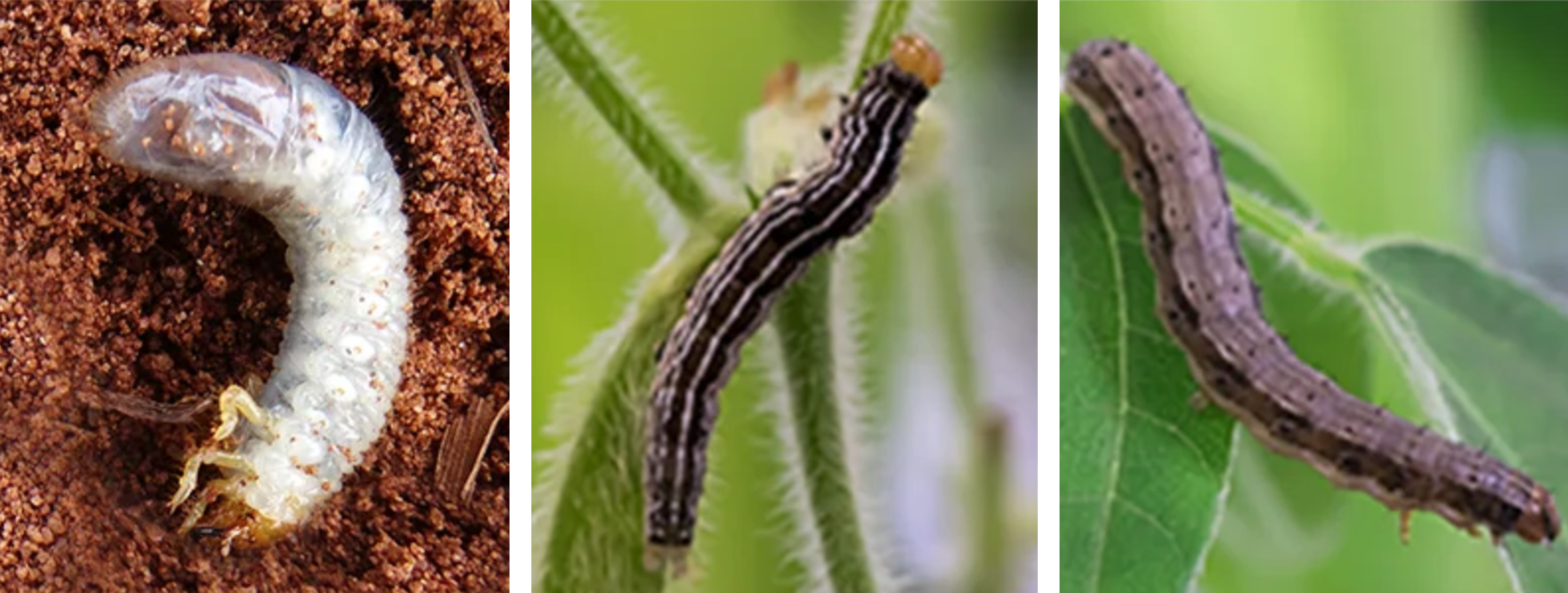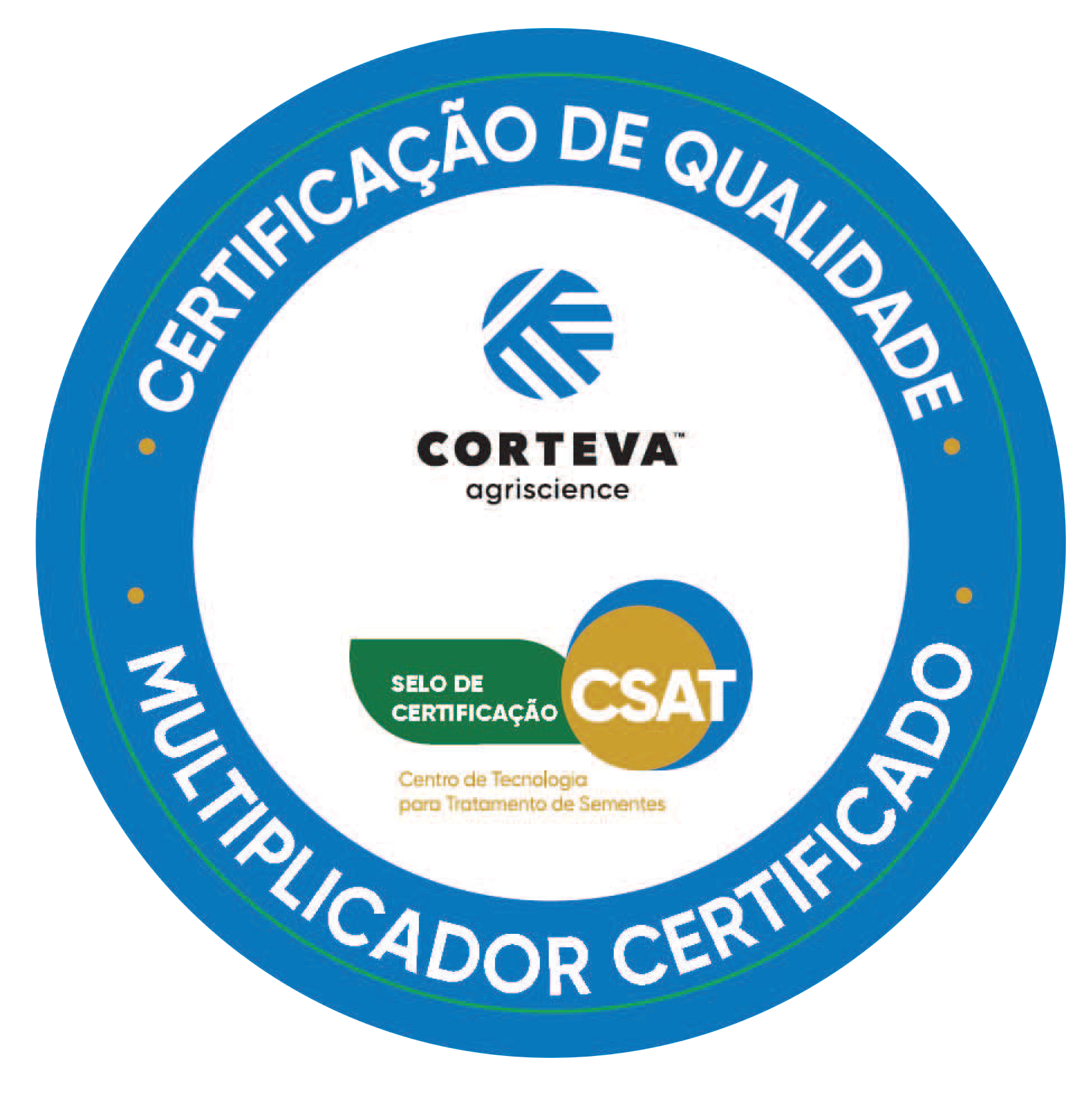Seed Treatments Protect Soybean Planting Supply in Brazil

Brazil is currently the world’s number-one soybean producer, growing about 6 million bushels per year, and exporting over 100 million tons around the world.1 Brazil’s soybean farmers—and the markets that count on their harvests—rely on the country’s soybean multiplier farms to supply their seed. There are about 200 soybean seed multipliers operating across the country, with large operations producing about 3 million bags of seed per year. These farms deliver high-performing, reliable seed to Brazilian soybean farmers by, first, choosing the optimal varieties to multiply, and second, by protecting this high-quality seed with effective seed treatments.
Soybean seed multipliers can choose from a range of leading soybean seed treatments. Multipliers treat seed right on their operations, bagging and selling this treated seed to their farmer customers. Large multiplier operations utilize commercial treatment products, equipment and procedures as specified by the label of each seed treatment product. This helps ensure that treatments are applied properly for maximum effectiveness.
Corteva Seed Applied Technologies provides seed treatment solutions to Brazil multipliers that are designed to work optimally under the disease and insect pressures specific to the country, so that multipliers can deliver the best protection and value to their customers.
The seed treatment recipe from Corteva Agriscience that is offered to soybean multipliers in Brazil contains three products aimed at controlling the most troublesome issues facing developing soybeans in this part of the world.
Insect pests: Caterpillars are a major challenge for Brazilian soybean farmers. Dermacor® insecticide seed treatment helps control white grubs, velvetbean caterpillars and fall armyworms, all of which feed on developing soybean plants, reducing stand establishment and potentially transmitting plant diseases.
Damaging nematodes: Plant parasitic nematodes feed on plant roots, causing yield-reducing damage and potentially transmitting diseases. Lumialza® nematicide seed treatment is a biological product that contains a naturally occurring bacteria. Lumialza forms a biological barrier around roots, protecting them from damaging nematodes for up to 80 days.
Diseases: Soil conditions vary across Brazil, with some farmers planting in cold, wet areas and others in warmer soils. Rancona® T fungicide seed treatment has two fungicide active ingredients to protect young soybeans from different disease pressures in various soil environments. With multiple modes of action, Rancona T protects against several key diseases and helps prevent resistance development.

Dermacor helps protect young soybeans from white grubs, velvetbean caterpillars and fall armyworms, which are common threats on Brazilian farms.
Since Brazil’s soybeans are exported all over the world, it’s vitally important that any seed treatments meet global regulatory requirements. Brazil has some of the strictest regulations in the world for crop protection products, including seed treatments. Each product goes through a battery of safety and environmental tests. Corteva Agriscience works to develop seed treatments that will not only pass this high level of regulatory scrutiny today but are likely to continue to meet more rigorous regulatory requirements in the future.
One of the ways Corteva works to improve the long-term regulatory viability of seed treatments is by including biological active ingredients. For example, Lumialza™ nematicide seed treatment is a biological product that shields developing roots from damaging nematodes, but doesn’t significantly impact other, beneficial nematodes and organisms in the soil. Biological solutions like these work with conventional solutions as part of the complete seed treatment recipe, to help protect seeds in multiple ways. Farmers, regulators and the food chain tend to be receptive to biological products like Lumialza because of their favorable environmental profiles.
Corteva Agriscience seed treatments are carefully developed and tested for quality and efficacy. In order to maintain that quality when seed treatments are applied on-site at multipliers, these operations must use Corteva-specified application equipment and procedures to apply our products. Corteva works closely with seed multipliers in Brazil to support them in meeting quality standards. This includes annual on-site training at multiplier operations around treatment components, application processes and how to verify the quality of treated seed.
One of the most important ways treated seed is checked for quality is by verifying that seeds contain the proper amounts and distribution of seed treatment ingredients, also known as “loading.” Typically, multipliers have to take regular samples of their treated seed and send them off for lab analysis, a process that can take up to 20 days. Multipliers working with Corteva are able to check loading on-site during the seed treatment process using handheld XRF (X-ray fluorescence) analyzers. This allows operations to make immediate adjustments to their processes when needed.
Quality control samples are also submitted to Corteva regularly and operations receive a report detailing quality findings. Operations that demonstrate consistent seed treatment quality are awarded a certification from Corteva. This lets farmers know the treated seed they’re purchasing from the multiplier meets the highest standards. For farmers who were previously used to treating seed themselves, this lends an extra level of trust. Having more farmers purchase certified, treated seed is good for multipliers, and good for farmers, who can experience more reliable early season protection that helps establish strong stands and good plant vigor.

Soybean seed multipliers in Brazil who meet Corteva seed treatment quality standards receive a certification. This helps give farmers more confidence in the treated seed they buy from multipliers.
Brazilian soybeans are vital to the world’s food chain—and production in the country continues to grow, driven not only by planting more hectares but by farmers’ ability to get more yield out of existing soybean fields. Soybean seed multipliers in Brazil supply the seed that enables these farmers to continue leading the world in production and exports. With seed treatments from Corteva, these multipliers help farmers get their seasons off to a strong start with confidence in the quality of their treated seed.
1 Colussi, Joana, Nick Paulson, Gary. Schnitkey and Jim Baltz. “Brazil Expected to Expand Soybean Acreage and Reduce Corn Acreage.” Department of Agricultural and Consumer Economics, University of Illinois at Urbana-Champaign, farmdoc daily 13 (October 17, 2023). https://farmdocdaily.illinois.edu/2023/10/brazil-expected-to-expand-soybean-acreage-and-reduce-corn-acreage.html
Dermacor® insecticide seed treatment, Lumialza™ nematicide seed treatment and Rancona® T fungicide seed treatment are not registered for sale or use in all states or countries. Contact your local regulatory agency to determine if a product is registered for sale or use in your area. Always read and follow label directions.